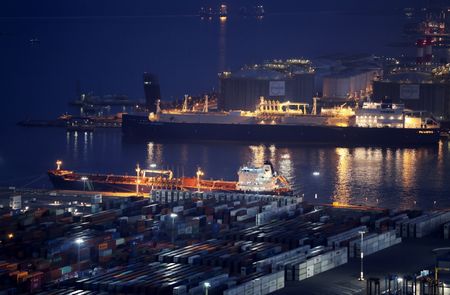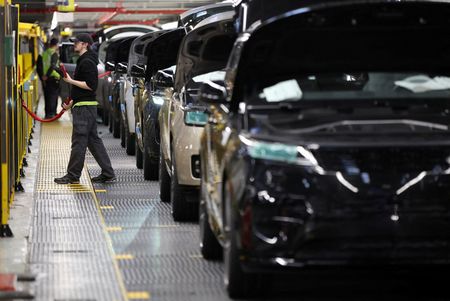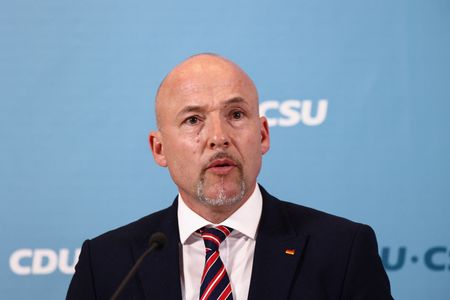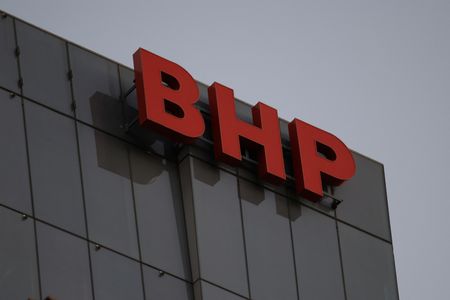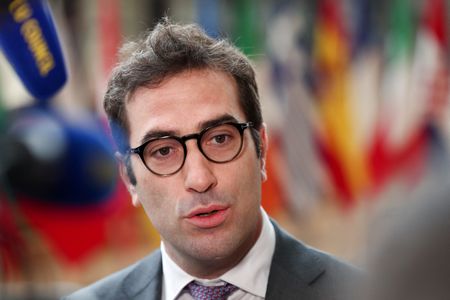By Lili Bayer, John Irish and Julia Payne
BRUSSELS (Reuters) – The European Union plans to ban Russian LNG imports into the bloc a year earlier than envisaged as part of a 19th package of sanctions against Moscow, EU sources said on Friday, a change apparently prompted by pressure from U.S. President Donald Trump.
The European Commission, the executive arm of the 27-member bloc, will propose bringing the ban forward to Jan. 1, 2027, when it presents the package to EU envoys later on Friday. Sanctions generally need to be approved by all EU member states.
Beyond LNG, the new restrictions are also expected to target more of Russia’s shadow tanker fleet, cryptocurrency, Russian and central Asian banks, Chinese refineries as well as economic zones, a customs loophole used by Moscow to import dual-use goods for its military.
Any EU proposal to phase out Russian energy more quickly would not affect Russia and will not force it to change its position, Kremlin spokesman Dmitry Peskov said on Wednesday.
Trump is pressing Europe to play a more robust role in helping end Russia’s war in Ukraine, demanding it shoulder a great burden of the cost shoring up Ukraine’s military and do more to deprive Moscow of the energy revenues bankrolling its war economy.
The proposal risks compelling EU countries to cover any shortfalls in LNG (Liquefied Natural Gas)supplies through purchases from the United States, increasing their energy dependency on the U.S. in an era when Washington is using trade tariffs as a policy tool.
One European official said advancing the ban on Russian LNG became a “priority” after European Commission President Ursula von der Leyen spoke with Trump this week.
The EU had planned a phase-out via other legal texts by Jan. 1, 2028 but Trump has repeatedly urged the bloc to end its Russian energy purchases faster before he does anything further to pressure Moscow.
Russia’s share in EU imports of liquefied natural gas decreased to 14% in the second quarter of 2025 from 22% in the first quarter of 2021, according to Eurostat. Spain, Belgium, the Netherlands and France import Russian LNG. Gas piped via TurkStream goes to Slovakia, Hungary and Bulgaria.
Totalenergies CEO Patrick Pouyanne said last week that Russian gas was needed until end 2027 “then we can exit from that because we can source it from other places without impact on the price”.
(Reporting by Lili Bayer, John Irish and Julia Payne; Writing by Makini Brice and Richard Lough; Editing by Kirsten Donovan and Frances Kerry)

